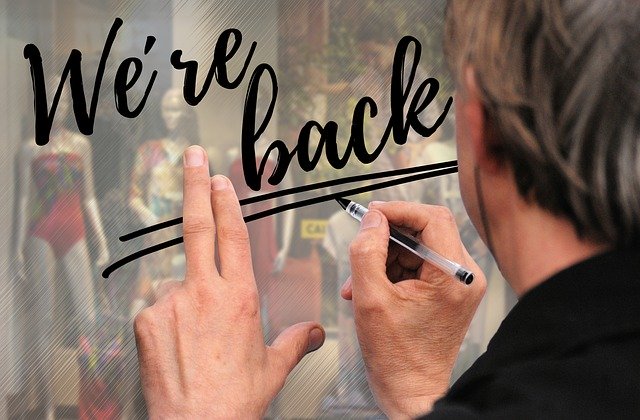Van Hollen touts legislation to help small businesses affected by COVID-19
@BryanRenbaum
U.S. Sen. Chris Van Hollen (D-Md.) Thursday touted legislation that would allow small business owners to receive help from the federal government with payroll costs as well as receive a grant to offset other costs in order to survive the COVID-19 pandemic.
“Let’s say customers were coming through the door and you wanted to essentially put your employees on 30 percent time-you would have paid them for 30 percent time. And for the balance they would be compensated through the unemployment system for the traditional amount plus the additional $600 in federal support under this proposal,” Van Hollen said in a teleconference that was held on the video meeting site Zoom.
“And that’s a win-win for everybody because the small businesses can calibrate bringing back their employees. And their employees will always do better being on their employer payroll-but also the ability to retain that $600. So everybody who moves from the unemployment system into this work share program will do better.”
Van Hollen said the legislation would give Maryland’s work share program a boost. The General Assembly established the Work Sharing Unemployment Insurance Program in 1984. The program is designed to help businesses avoid layoffs during temporary economic downturns.
“The federal proposal we are advancing would really build on that federal work share program that Maryland has adopted. Right now about 25 states are participating in the workshare program. The federal initiative that we are proposing would make it easier and faster for all states to participate so that all the small businesses around the country could access the work share program and then this program with the additional help for fixed costs.”
State Sens. Katie Fry Hester (D-Howard and Carroll) and Jim Rosapepe (D-Prince George’s and Anne Arundel) joined Van Hollen in the teleconference. Both lawmakers helped Van Hollen craft the legislation. They echoed similar sentiments to that of their federal counterpart.
“It really is a triple win,” Hester said. It’s good for the employer. It’s good for the employee. And it’s good for the state.”
“This is a great example of the interaction between state and federal government…What Senator Hester and I have done is take the law that exists in Maryland. Let’s market it…have more people take advantage of it. What Senator Van Hollen has done is picked up the ball and said we can really expand this,” Rosaeppe explained. “And adding the grant for non-payroll costs gives its some of the advantages of the Payroll Protection plan without the problems of the Payroll Protection plan.”
Van Hollen and fellow Democratic Sens. Chris Murphy (Conn.) and Jeff Merkley (Ore.) introduced the Rebuilding Main Street Act on May 14. It is unclear if it will advance in the GOP-controlled Senate.
The legislation would, according to a press release “Provide a Rebuilding Main Street Grant to hard-hit employers who do not fully layoff any workers by utilizing Work Sharing, including employers who bring previously laid-off workers back on the payroll using Work Sharing.”
The grant would “cover up to 50% of the employer’s fixed costs and expenses necessary to reopen and reconfigure their businesses, with a cap of $300,000 per employer.”
Maryland’s small businesses have suffered a great deal under restrictions aimed at preventing the spread of the pandemic. The state lost about 350,000 jobs in April and about 21,000 jobs in March. Maryland’s unemployment rate is about 10 percent.
Gov. Larry Hogan said Wednesday that starting Friday at 5 p.m. restaurants may reopen for outdoor dining. Currently, restaurants are restricted to delivery and carry-out service. Hogan also said it is possible that the state may be able to begin the second stage of the recovery plan as early as next week. That would mean lifting the ban on the closure of all non-essential businesses.

MarylandReporter.com is a daily news website produced by journalists committed to making state government as open, transparent, accountable and responsive as possible – in deed, not just in promise. We believe the people who pay for this government are entitled to have their money spent in an efficient and effective way, and that they are entitled to keep as much of their hard-earned dollars as they possibly can.

